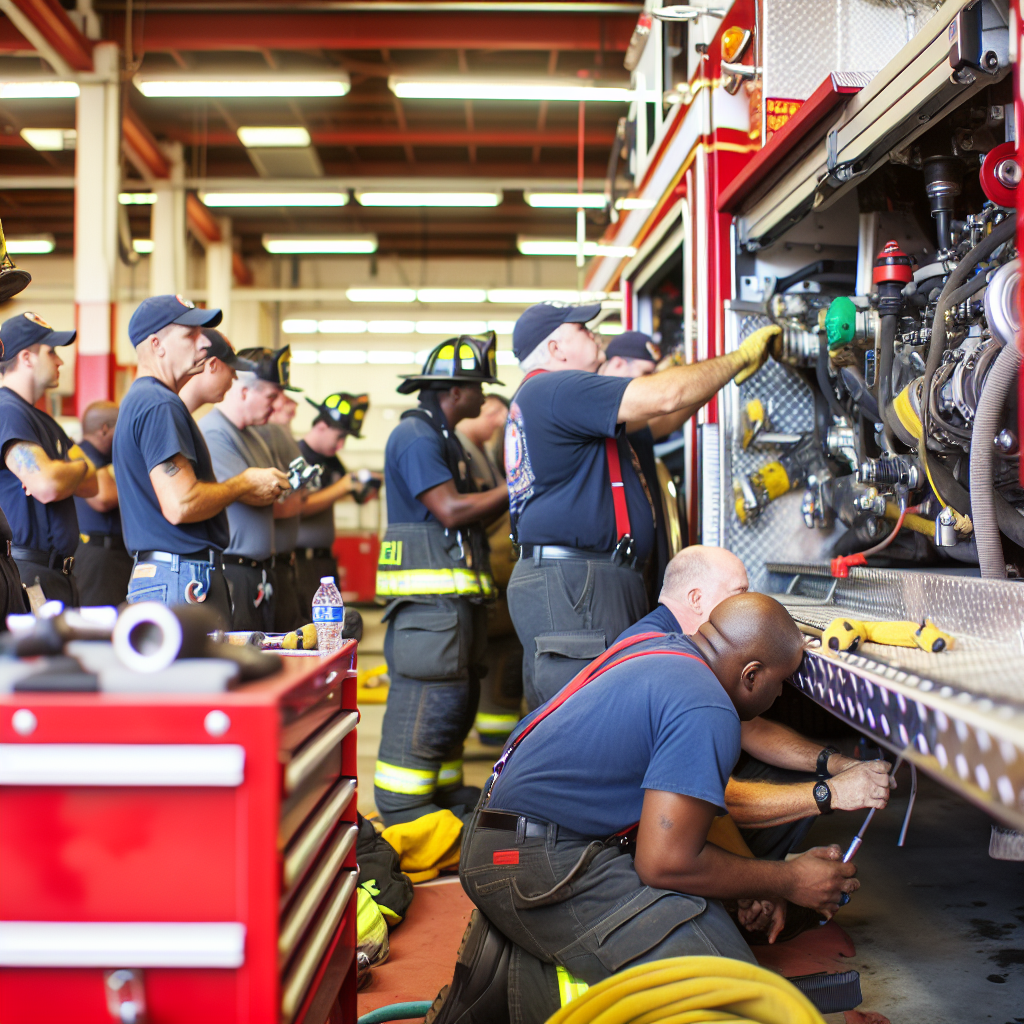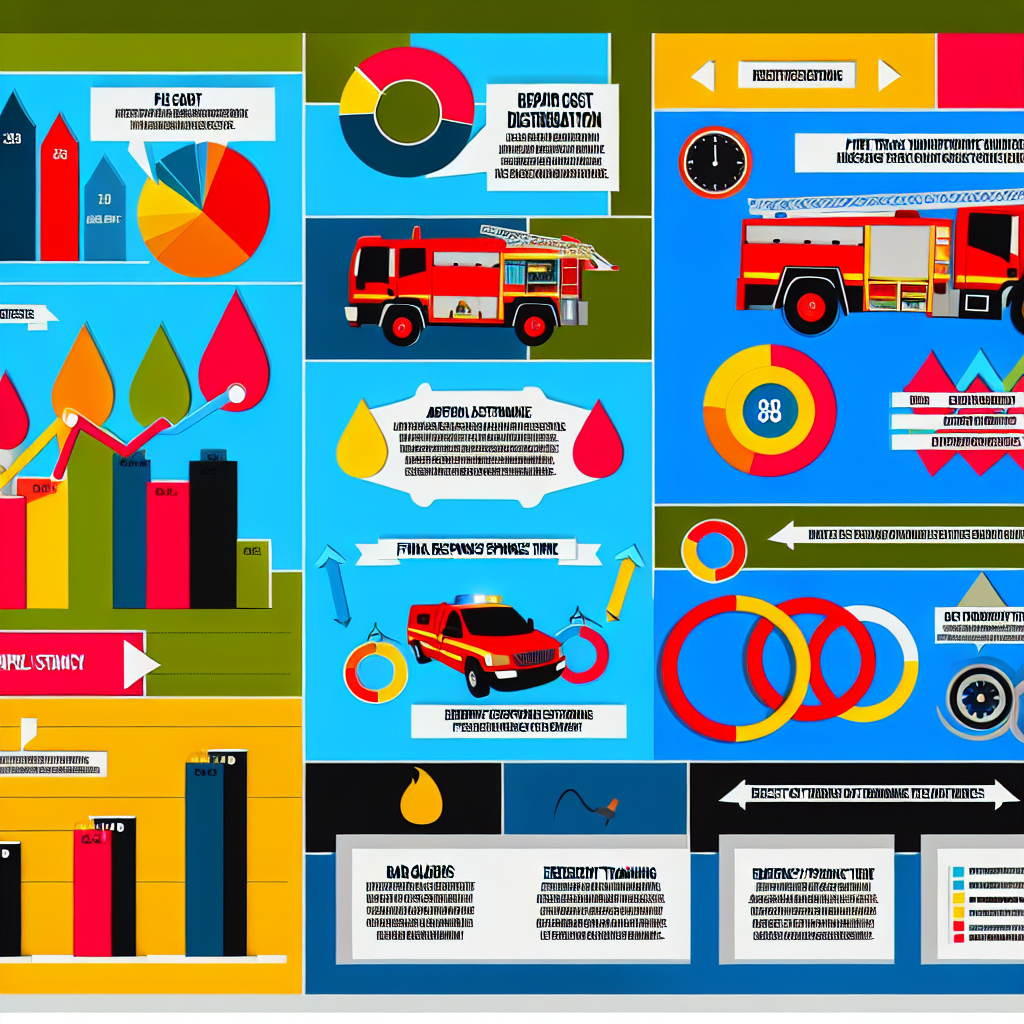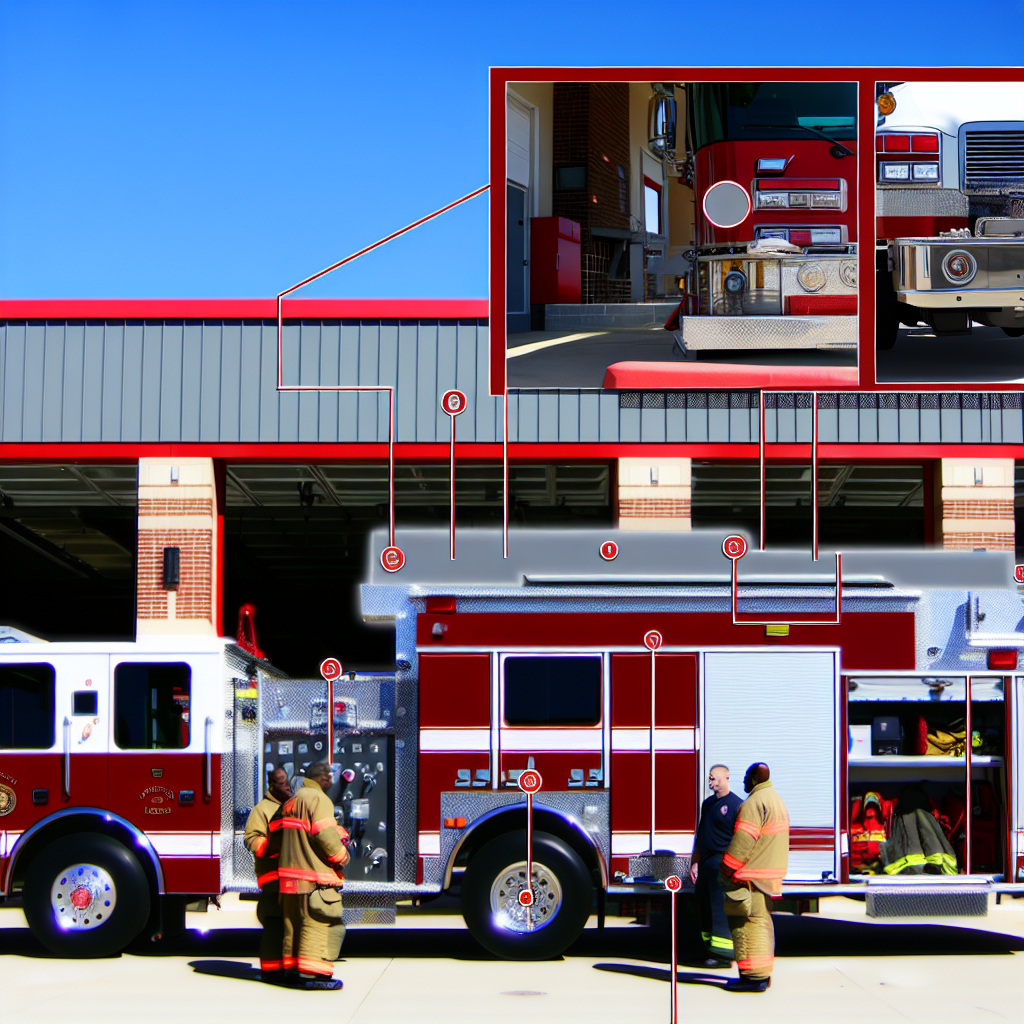In the world of emergency services, every second matters. Preventive maintenance training for fire trucks is essential. It can mean the difference between life and death in critical moments. Properly trained personnel ensure that fire trucks are always ready to respond quickly to emergencies in their communities.
One leader in this field is Pierce Manufacturing. They are known for their commitment to providing comprehensive, hands-on maintenance training tailored specifically for fire departments. Since 1997, Pierce Manufacturing has focused on customized service training. This has greatly enhanced the reliability and longevity of fire apparatus. Ultimately, it contributes to safer and more prepared communities during challenging times.


Key Benefits of Preventive Maintenance Training
Preventive maintenance training for fire trucks is essential for ensuring their longevity and operational efficacy. Regular maintenance helps identify and address potential issues before they escalate, reducing downtime and extending the vehicle’s service life. Pierce Manufacturing emphasizes the importance of such training through its comprehensive product support and training programs. Their newly expanded training center in Appleton, Wisconsin, offers curriculums that enhance team members’ skills, contributing to improved production processes and quality control. source
Additionally, Pierce’s extensive dealer network provides ongoing support, including maintenance training and access to over 600 dedicated service professionals. This network ensures that fire departments receive timely assistance, keeping their apparatus in optimal condition. source
Implementing preventive maintenance programs, as recommended by Pierce, involves regular inspections of critical components such as belts, hoses, and cooling systems. These practices help prevent breakdowns, reduce maintenance costs, and ensure that fire trucks remain ready for emergency responses. source
In summary, preventive maintenance training, supported by Pierce Manufacturing’s resources and dealer network, plays a vital role in enhancing the longevity and efficacy of fire trucks.
Enhanced User Adoption of Preventive Maintenance Training in Fire Services
To substantiate the significance of preventive maintenance training in enhancing user adoption within fire services, recent findings highlighted by several studies demonstrate measurable improvements attributed to such training.
- High Adoption Rates with Training Programs: A study conducted by Minnesota’s Office of the Legislative Auditor indicated that approximately 80% of fire departments surveyed had preventive maintenance programs implemented. These programs are pivotal in ensuring that apparatus and equipment remain operational during emergencies, showcasing the vital role of routine training. (source)
- Improved Safety Compliance: An initiative in a municipal facility implemented a data analytics solution for coordinating fire safety inspections, achieving a notable 40% reduction in safety compliance issues over a year. This illustrates the tangible benefits of structured maintenance and training on safety outcomes. (source)
- Equipment Reliability Through Maintenance: A case study within industrial settings emphasized the importance of regular maintenance schedules. By transitioning to data-driven decision-making in repairs, facilities saw enhancements in equipment reliability and a decrease in fire incidents due to better preventative practices. (source)
- Optimizing Emergency Response: Data-driven approaches have proven effective in optimizing response times. A metropolitan fire department utilized analytics to identify traffic patterns and enhance routing, which led to a quantifiable decrease in response times and improved emergency service delivery. (source)
These findings collectively reinforce that engaging in preventive maintenance training not only improves user adoption among fire service personnel but also contributes to enhanced safety, reliability, and operational efficiency in responding to emergencies.
| Company | Number of Classes | Class Duration | Unique Features |
|---|---|---|---|
| Pierce Manufacturing | 15 | 16 hours (2 days) | Customized training based on apparatus, regional training options, Mobile Training Unit, Master Technician program. |
| Oshkosh Corporation | Various | 5 days (ARFF focus) | Comprehensive training programs, Learning Management System (LMS), advanced training facilities, virtual training. |
This table highlights the key differences in training classes offered by Pierce Manufacturing compared to Oshkosh Corporation, focusing on class offerings, duration, and unique features.
“We know how important it is to support new and tenured team members in order to provide the best workplace experience and ultimately produce the highest quality apparatus.” – Jim Johnson, president of Pierce Manufacturing
This commitment underscores the importance of customized service training for fire apparatus, equipping fire departments with the knowledge and skills necessary to maximize the performance and reliability of their emergency vehicles.
Community Impact of Fire Truck Training and Maintenance
The effectiveness of fire truck training and maintenance has a profound impact on the communities they serve. When fire trucks are well-maintained and firefighters are adequately trained, they can respond swiftly and effectively to emergencies, saving lives and property. Conversely, when training is inadequate, the risks escalate significantly. As emphasized in the quote, “Communities are at risk when fire trucks cannot respond to service calls.” This vulnerability exposes citizens to dangerous situations, particularly during fires, natural disasters, or urgent medical emergencies.
Inadequately trained personnel may struggle with operating the equipment or ensuring that the fire apparatus is in optimal working condition, resulting in longer response times. Moreover, this deficiency can lead to increased mechanical failures during critical incidents, further jeopardizing the safety of both the firefighters and the community members they aim to protect. Therefore, it is imperative that fire departments prioritize comprehensive training and rigorous maintenance protocols to ensure their apparatus is always ready for service, thereby safeguarding the entire community and enhancing overall public safety.
In conclusion, preventive maintenance training for fire trucks is vital for ensuring that fire services can operate effectively and respond efficiently during emergencies. This training not only enhances the performance and reliability of fire apparatus but also equips firefighters with the necessary skills to handle critical situations swiftly. The importance of regular maintenance cannot be overstated, as it directly impacts response times and the safety of both personnel and the communities they serve.
Fire departments must take proactive steps to engage in these tailored training programs offered by experts like Pierce Manufacturing. By doing so, they can significantly reduce operational risks and ensure their teams are well-prepared to face any challenges. It is time for fire service leaders to prioritize preventive maintenance training, fostering a culture of excellence that ultimately protects lives and property. Let’s work together to ensure that every fire truck is always ready for action.
In the high-stakes world of emergency services, every second counts. Preventive maintenance training for fire trucks, specifically focusing on Fire Truck Maintenance and Service Training, is not just a technical necessity; it is a vital component that can mean the difference between life and death in critical situations. Properly trained personnel ensure that fire trucks are always in optimal condition, ready to respond at a moment’s notice to emergencies in their communities. Among the pioneers in this essential field is Pierce Manufacturing, a leader known for their commitment to providing comprehensive and hands-on maintenance training tailored specifically for fire departments. By focusing on customized service training since 1997, Pierce Manufacturing has been instrumental in enhancing the reliability and longevity of fire apparatus in line with best practices in routine maintenance, ultimately contributing to safer and more prepared communities during challenging times.
Key Benefits of Preventive Maintenance Training
Preventive maintenance training, including Fire Truck Maintenance and Service Training, is essential for ensuring their longevity and operational efficacy. Regular maintenance helps identify and address potential issues before they escalate, reducing downtime and extending the vehicle’s service life. Pierce Manufacturing emphasizes the importance of such training through its comprehensive product support and training programs. Their newly expanded training center in Appleton, Wisconsin, offers curriculums that enhance team members’ skills in line with Emergency Vehicle Technician (EVT) training, contributing to improved production processes and quality control. [source]
Additionally, Pierce’s extensive dealer network provides ongoing support, including customized service training and access to over 600 dedicated service professionals. This network ensures that fire departments receive timely assistance, keeping their apparatus in optimal condition. [source]
Implementing preventive maintenance programs, as recommended by Pierce, involves regular inspections of critical components such as belts, hoses, and cooling systems. These practices help prevent breakdowns, reduce maintenance costs, and ensure that fire trucks remain ready for emergency responses. [source]
In summary, preventive maintenance training, supported by Pierce Manufacturing’s resources and dealer network, plays a vital role in enhancing the longevity and efficacy of fire trucks.
Community Impact of Fire Truck Training and Maintenance
The effectiveness of fire truck maintenance and service training has a profound impact on the communities they serve. When fire trucks are well-maintained and firefighters are adequately trained, they can respond swiftly and effectively to emergencies, saving lives and property. Conversely, when training is inadequate, the risks escalate significantly. As emphasized in the quote, “Communities are at risk when fire trucks cannot respond to service calls.” This vulnerability exposes citizens to dangerous situations, particularly during fires, natural disasters, or urgent medical emergencies. Inadequately trained personnel may struggle with operating the equipment or ensuring that the fire apparatus is in optimal working condition, resulting in longer response times. Moreover, this deficiency can lead to increased mechanical failures during critical incidents, further jeopardizing the safety of both the firefighters and the community members they aim to protect. Therefore, it is imperative that fire departments prioritize comprehensive training and rigorous maintenance protocols, including Fire Truck Maintenance and Service Training, to ensure their apparatus is always ready for service, thereby safeguarding the entire community and enhancing overall public safety.
In conclusion, preventive maintenance training for fire trucks, particularly Fire Truck Maintenance and Service Training, is not merely an operational necessity; it is a critical component that ensures the safety and preparedness of communities during emergencies. As highlighted throughout this article, hands-on training not only enhances the reliability and performance of fire apparatus but also equips personnel with the skills required to respond effectively in life-threatening situations. By embracing tailored training programs, fire departments can significantly reduce mechanical failures and improve response times, ultimately safeguarding lives and property. It is essential for fire service leaders to prioritize engagement in such training initiatives, ensuring that their teams are well-prepared and capable of meeting the unique challenges they face. Together, fostering a culture of continuous learning and maintenance excellence can lead to safer communities, reinforcing the fundamental mission of fire services to protect and serve.

This graphic illustrates the importance of fire truck maintenance statistics, showing key data on repair costs, the average lifespan of components, impacts on emergency response times, and the role of training in operational effectiveness. By highlighting these metrics, we aim to enhance understanding of the critical need for regular maintenance and training in ensuring the reliability and efficiency of fire trucks.
In the high-stakes world of emergency services, every second counts. Preventive maintenance training for fire trucks, specifically focusing on Fire Truck Maintenance and Service Training, is not just a technical necessity; it is a vital component that can mean the difference between life and death in critical situations. Properly trained personnel ensure that fire trucks are always in optimal condition, ready to respond at a moment’s notice to emergencies in their communities. Among the pioneers in this essential field is Pierce Manufacturing, a leader known for their commitment to providing comprehensive and hands-on maintenance training tailored specifically for fire departments. By focusing on customized service training since 1997, Pierce Manufacturing has been instrumental in enhancing the reliability and longevity of fire apparatus in line with best practices in routine maintenance, ultimately contributing to safer and more prepared communities during challenging times.
Key Benefits of Preventive Maintenance Training
Preventive maintenance training, including Fire Truck Maintenance and Service Training and fire safety equipment maintenance, is essential for ensuring the longevity and operational efficacy of fire apparatus. Regular maintenance helps identify and address potential issues before they escalate, improving fire apparatus reliability, reducing downtime, and extending the vehicle’s service life. Pierce Manufacturing emphasizes the importance of such training through its comprehensive product support and training programs. Their newly expanded training center in Appleton, Wisconsin, offers curriculums that enhance team members’ skills in line with Emergency Vehicle Technician (EVT) training, contributing to improved production processes and quality control. [source]
Additionally, Pierce’s extensive dealer network provides ongoing support, including customized service training and access to over 600 dedicated service professionals. This network ensures that fire departments receive timely assistance, keeping their apparatus in optimal condition. [source]
Implementing preventive maintenance programs, as recommended by Pierce, includes regular inspections of critical components such as belts, hoses, and cooling systems. These practices help prevent breakdowns, reduce maintenance costs, and ensure that fire trucks remain ready for emergency responses. [source]
In summary, preventive maintenance training, supported by Pierce Manufacturing’s resources and dealer network, plays a vital role in enhancing the longevity and efficacy of fire trucks and ensuring apparatus reliability.
Community Impact of Fire Truck Training and Maintenance
The effectiveness of fire truck training and maintenance has a profound impact on the communities they serve. When fire trucks are well-maintained and firefighters are adequately trained, they can respond swiftly and effectively to emergencies, saving lives and property. Conversely, when training is inadequate, the risks escalate significantly. As emphasized in the quote, “Communities are at risk when fire trucks cannot respond to service calls.” This vulnerability exposes citizens to dangerous situations, particularly during fires, natural disasters, or urgent medical emergencies. Inadequately trained personnel may struggle with operating the equipment or ensuring that the fire apparatus is in optimal working condition, resulting in longer response times. Moreover, this deficiency can lead to increased mechanical failures during critical incidents, further jeopardizing the safety of both the firefighters and the community members they aim to protect. Therefore, it is imperative that fire departments prioritize comprehensive training programs, including emergency vehicle training and rigorous maintenance protocols, to ensure their apparatus is always ready for service, thereby safeguarding the entire community and enhancing overall public safety.
In conclusion, preventive maintenance training for fire trucks, particularly Fire Truck Maintenance and Service Training, is not merely an operational necessity; it is a critical component that ensures the safety and preparedness of communities during emergencies. As highlighted throughout this article, hands-on training not only enhances the reliability and performance of fire apparatus but also equips personnel with the skills required to respond effectively in life-threatening situations. By embracing tailored training programs, fire departments can significantly reduce mechanical failures and improve response times, ultimately safeguarding lives and property. It is essential for fire service leaders to prioritize engagement in such training initiatives, ensuring that their teams are well-prepared and capable of meeting the unique challenges they face. Together, fostering a culture of continuous learning and maintenance excellence can lead to safer communities, reinforcing the fundamental mission of fire services to protect and serve.


